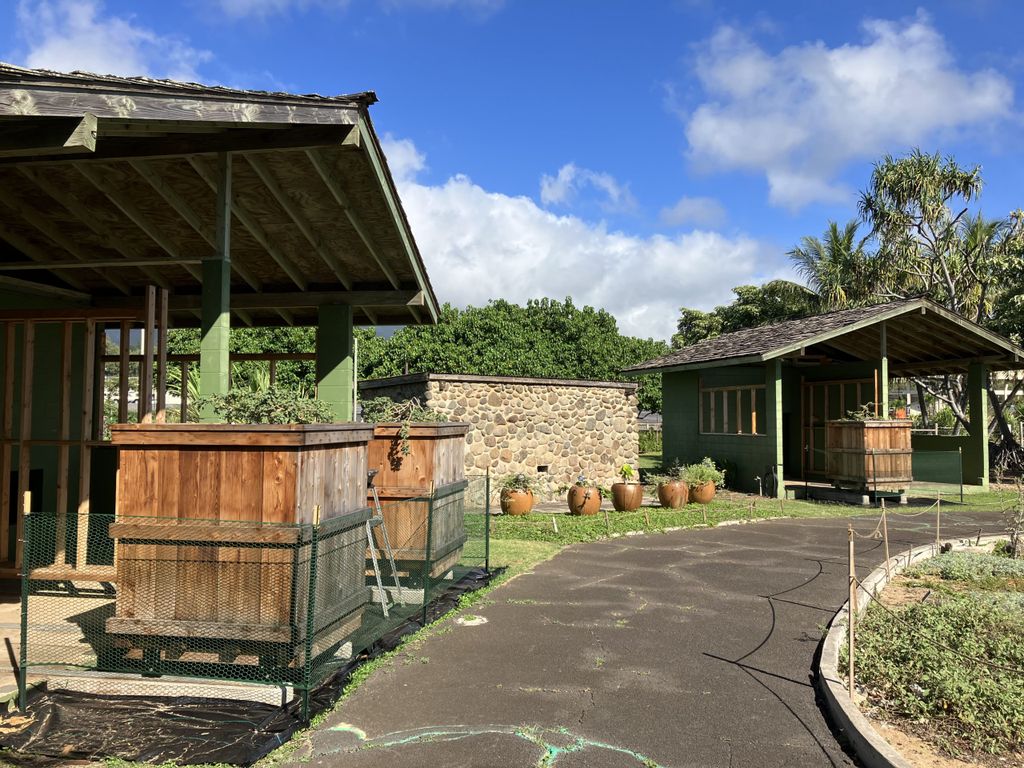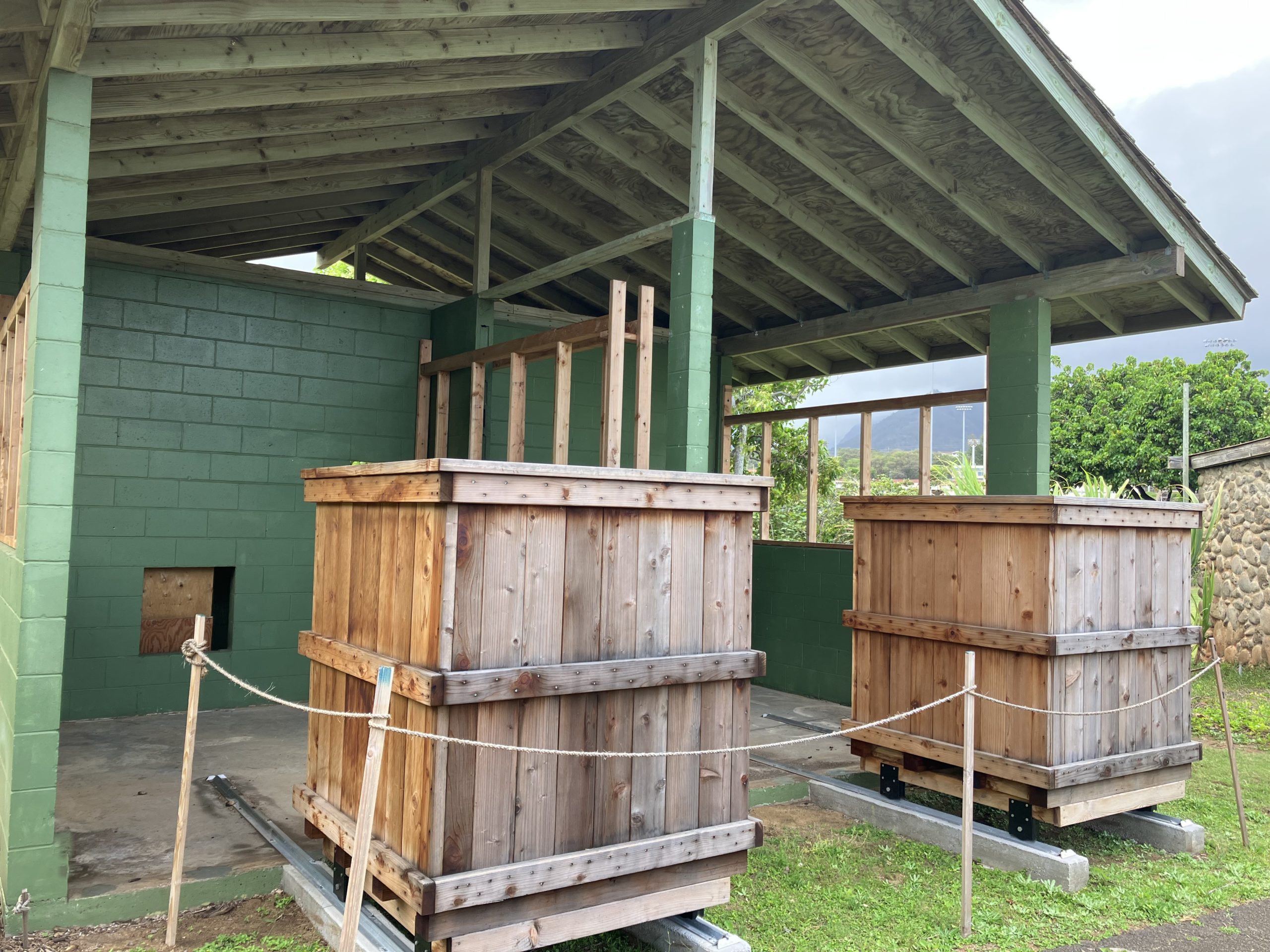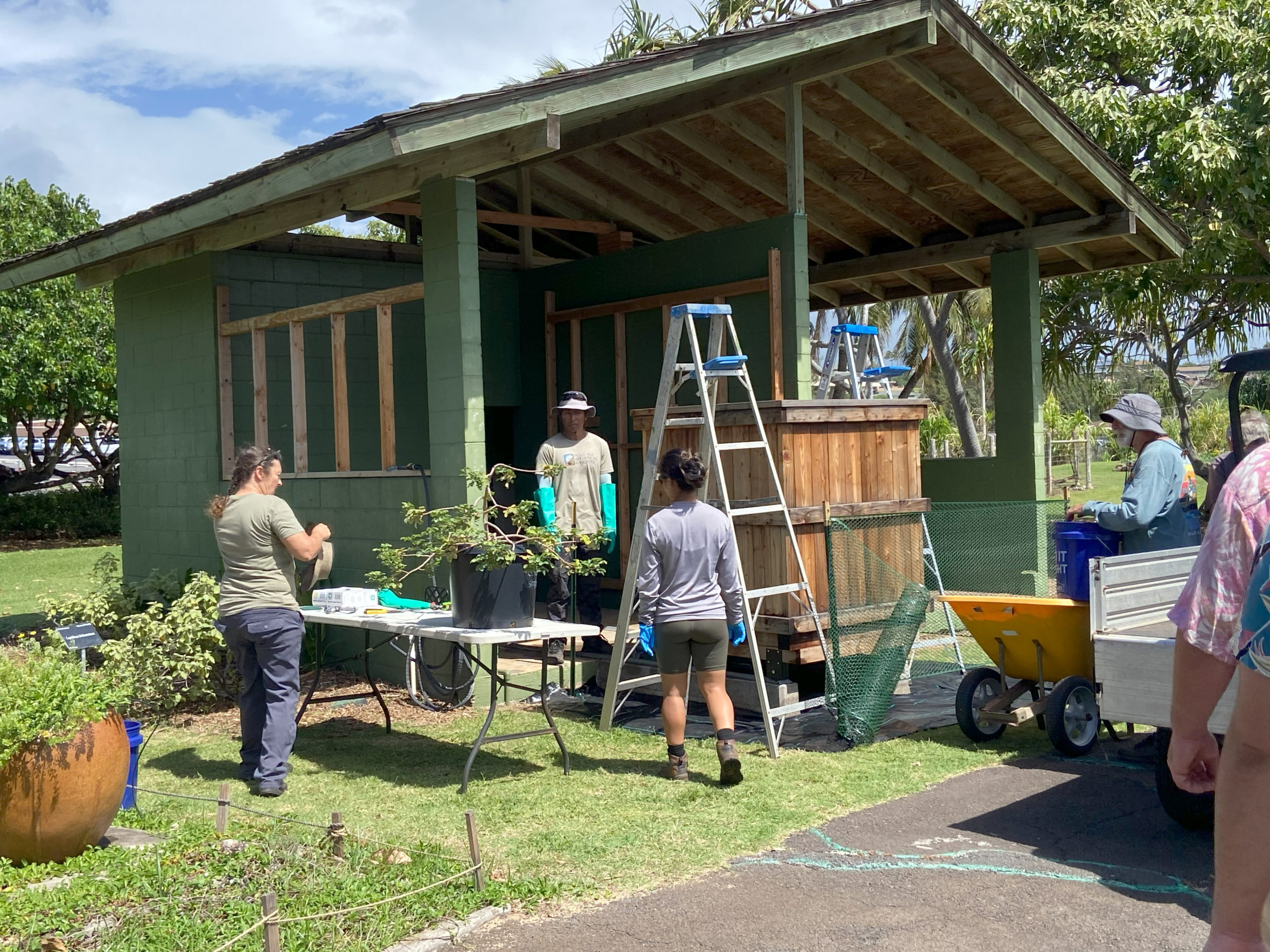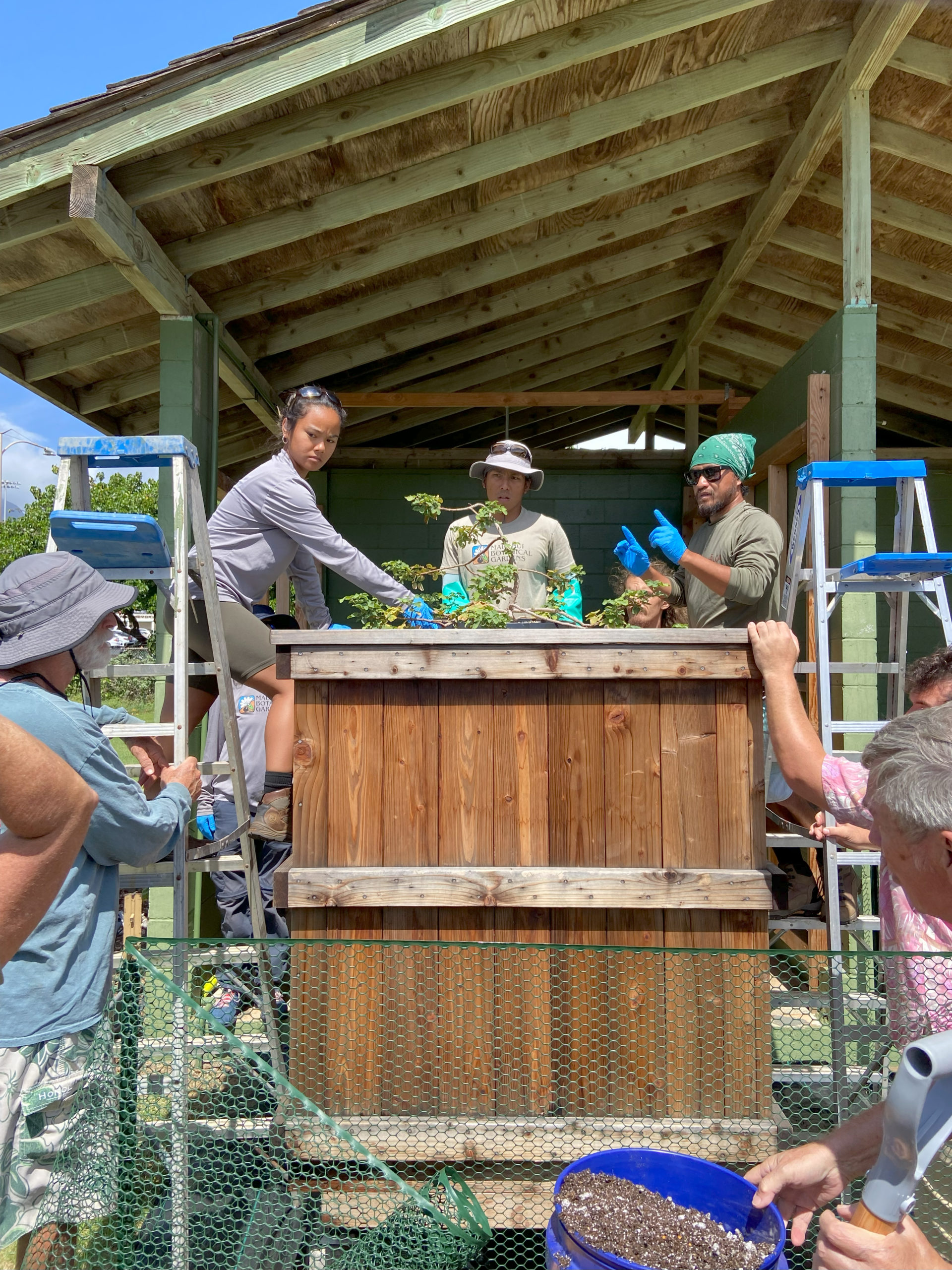Protecting ex situ Kanaloa kahoolawensis from weather damage, Hawaii

-
Status of project
Completed -
Region
North America -
Country
United States of America -
Programme
BGCI -
Workstream
Saving Plants -
Topic
Conservation Horticulture
Funded by the Global Botanic Garden Fund: Extinct in the Wild
Project Completed: 2023
Institution: Maui Nui Botanical Gardens
Severe weather protection for Kanaloa kahoolawensis
The aim of this project was to protect ex situ Kanaloa kahoolawensis plants – one of the most endangered United States plant species – from potential hurricane damage, at Maui Nui Botanical Gardens. To address this, existing concrete structures were retrofitted and removable panels were created.
In addition to installing hurricane clips, open concrete buildings (that once housed zoo animals in the garden’s public landscape) were re-purposed for this project. Frames were installed and plywood panels were custom-cut, so they can be quickly erected for wind protection in case of hurricanes.

Three, 4′ x 4′ x 4′ redwood planters were built and were planted with three Kanaloa kahoolawensis seedlings. Tracks were installed so that the large planters could be pushed inside the buildings, in case of adverse weather, but could be in a half day of sun during fine weather.
The most significant impact from this project was that it gave this species a place to grow in a public place for the first time in history. The planters are in full view in the public landscape and their unusual appearance with “train tracks” gets a lot of attention.

The biggest challenge by far is how genetically bottlenecked these first generation seedlings are compared to the one wild sourced plant that was grown here previously. They are very susceptible to common pests, heat, overwatering, and other environmental threats. Maui Nui Botanical Gardens lost one seedling within 8 months to Hibiscus snow scale, despite the infestation being extremely mild. The other two seedlings are doing well. There are only 19 individuals alive as of the time of this writing, so Maui Nui Botanical Gardens also partnered with several other organizations to provide them with planters for their seedlings. They meet regularly to troubleshoot horticultural issues, keeping them alive and attempting to propagate this species.

This project provided a safe harbour in a public viewing place for Ka Palupalu o Kanaloa (Kanaloa kahoolawensis) by providing infrastructure to protect it from excessive sun, rain, and wind when needed.